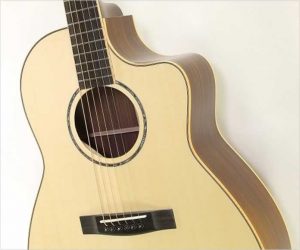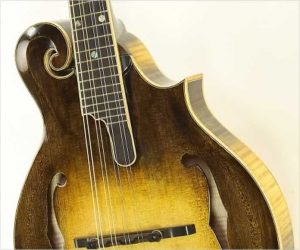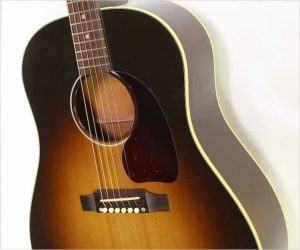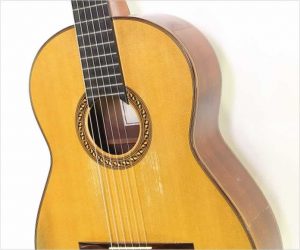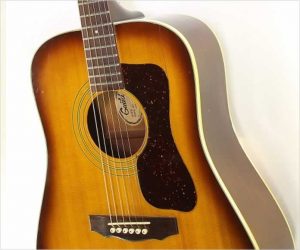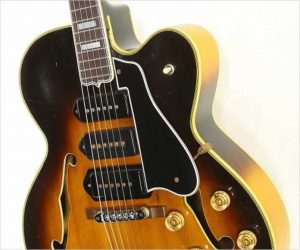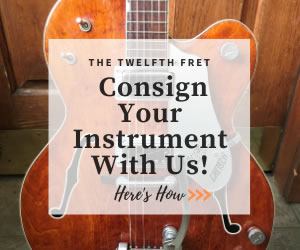Here we’re looking at a brand new, just introduced Huss and Dalton CM model. It features an Engelmann Spruce top, Indian Rosewood for the sides and back, with Mahogany for the body blocks and neck. The head plate, bridge, and Maple-bound fingerboard are Ebony. Body binding is also Maple. Abalone is used for the rosette and 12th Fret Scroll inlay, and the Huss and Dalton log is Mother of Pearl.
Spruce
The Eastman MD915SB F Style mandolin follows the classic bluegrass style instruments pioneered in the early part of the 20th century by Orville Gibson and Lloyd Loar. These instruments departed steeply from all previous mandolins, in that they merged violin family concepts with the mandolin design. Traditional European mandolins generally had bowl backs and flat tops, which limited both their comfort and potential for delivering sound at a higher volume.
This instrument has sold
MORE →This well used Sergei de Jonge Classical guitar was built during 1998 in de Jonge Toronto shop of Spruce and Indian Rosewood. Sergei de Jonge builds many excellent, professional grade instruments, and he also has taught many other builders. Some already accomplished builders take shorter sessions focusing on areas where de Jonge specializes, particularly French Polish finishing.
This instrument has sold
MORE →This Guild D40SB was built during 1975 while the company was in Westerly, Rhode Island. It has definitely been used as its maker intended, and has the wear and repairs to show for it! The Guild D40SB is a dreadnought guitar (hence the D) with 40 level materials and appointments and a Sunburst finish top (the SB in the model number). Similar in concept to the Martin D-18, the Guild D40 pairs a Sitka Spruce top with tropical Mahogany for the sides, back, body blocks, back bracing and neck, with Rosewood for the bridge and un-bound fingerboard.
This instrument has sold
MORE →The Gibson L5 was the premiere cutaway archtop for jazz guitarists – in fact it was originally named the Premiere – from its 1939 introduction. Close on its heels, though, the 1949 ES-5 offered three P-90 pickups but was built with laminates instead of solid woods for the body, all to reduce feedback. Here we’re looking at a Gibson L5 built during 1948, and some time later converted to an ES-5 configuration, with three P-90 pickups, but wired as other Gibson models – four controls and a switch – and not the six controls of the ES-5.
This instrument has sold
MORE →